Mad Kate is a writer, musician and performance artist. She fronts ‘Mad Kate: The Tide’ alongside musician Jacopo Bertacco. Together, they have performed for Us Inc who organise performance events that play with the performativity of gender and sexuality for the Month of Performance Art – Berlin. She speaks to me from the front room of her surreal costume and music studio ‘Exit’ about The Tide, the idea of tapping into a deeper consciousness of life and potential as expressed in her concept album, ‘ALIVE:ness,’ and how and why queer, gender-fuck and sexuality are common themes in her work. How much of the world is dead to you?
The first thing I performed when I came to Berlin was spoken word. I think there is a lot of negativity surrounding spoken word in Germany; people I have spoken to and a lot of my close friends really hate it. Though I like spoken word, I understand the stereotype, so, if performing spoken word doesn’t go down like sugar for most people, why not just put my concept in another package? I really wanted to integrate movement and costume; obviously, because my partner makes costumes (exitberlin.com), conceptual costume was easy to integrate. I began collaborating with Jacopo on guitar 2 years ago but before that development it was either spoken word or acapella and me dancing or moving about. Our goal was to ride the line between performance art and band because considering I was already musical and writing my own texts, I might as well write my own music to fit what I was performing about and not have to find an existing song to fit the concept. We also wanted to create something that you could listen to without needing to see the live show necessarily, yet the performance would hopefully be compelling enough that you wouldn’t just look at it and say: ‘Oh yeah I saw another non-descript band’.
I have always been interested in gender-fuck and sexuality. Broadly speaking, it is integrated in nearly all the projects that I have done as an adult (Kamikaze Queens, Bonaparte and Hyenas). Even as early on as when I was in college and doing research on sustainable development, I was interested in emphasizing gender and sustainable development and working with women in farming cooperatives in Haiti and Nicaragua. Later I was writing my MFA thesis in “Writing and Consciousness,” it was about non-consensual sex and grey areas of rape- women and their experiences of feeling like they’ve been raped but being unable to define it exactly because it was a non-violent-attack rape. I did a lot of writing on that topic and about rape culture and consent.
Later, I started working here as a dancer. I have done a topless dancing and peep-shows and porn work and queer porn and I started integrating all of these experiences in my art and writing. It’s been a through-line. This particular project I am focusing on is called “ALIVE:ness”. For me, it’s absolutely related to gender and sexuality but it didn’t necessarily emerge from that point. Around the time my father died was when I started thinking a lot about this concept. It’s the idea of how alive somebody is in your life. I don’t mean aliveness as in how alive you feel today or how alive you are, it’s about how alive other people are to you and the sense that they are present in your life.
I then framed this in the context of our digital technological age where you can have a lot of communication with someone you never see. Let’s say you are writing a series of emails to a dead person- you’d never hear back from them. Is that different from writing to somebody who is alive who you don’t hear back from? It seems like there is a difference between physical presence and other kinds of presence.
How this concept of aliveness relates to queer is in how we use even low forms of technology to reimagine our bodies differently, such as a dildo, as a piece of technology. We use that to imagine that we have a cock but we don’t. So if we are already, through virtual or physical technologies, imagining our bodies differently, can we not just reimagine them without those things? Can we reimagine ourselves and other people within a queer context without having to do anything and it be a mental flip not necessarily taking place anywhere in the virtual world? Maybe those things are helping us imagine it, we think we need it and maybe we do to get us there, but maybe there’s this whole other mental consciousness we can tap into.
Then there is how our sense of mourning and sadness over people is linked to our sense of them being alive to us in some way. Just speculating here but it seems it is often the case that, if they consider the dead in question a part of their family, clan, where they were born, part of their town, ethnicity or maybe their gender, then these lives somehow matter more to a person. “Americans mourned the loss of…” because it happened in America, but when it is “Iraqi lives,” as how it’s termed in the media and by a lot of people operate in this way as well, it doesn’t matter as much because they are not seen as part of what’s ‘alive’ to an American citizen. Why isn’t a life in Iraq as important as that guy outside? If he were to be killed just suddenly, I mean, I don’t know him any more than I know anyone else that I don’t know, but would it matter any more or less than if it happened to my neighbour or my family?
So, how can reimagine that sense of aliveness and change it? We’re reimagining a sense of aliveness when we’re interacting on Facebook (which is one thing that unites us, strangely) with someone in a foreign country, or a stranger we made a connection with because they’re on Facebook, something else like, maybe you’re both dancers and you like their movement. Yet, it seems there are other avenues for finding these connections and sense of aliveness with anybody because it’s already quite random anyway. So how do we increase that potential and how do we do it without technological crutches? Is it possible to feel deeply or connected to every single life? If we actually cared about the whole body of humanity and the whole body of the earth that we’re living on, I know this is starting to sound really hippy, but if we really did give a shit about it all, what would happen so far as to how we operate?
These concepts are in my lyrics and spoken parts of my songs. The gender-fuck aspect is in my costuming and I’m free with my body. I do use sex as a tool but I hope that the body that I put across on stage doesn’t necessarily play into any particular sexualisation of it. If I wanted to go on stage and be a so-called ‘sex object,’ it would be fine, but for this project, it’s really just about being a body. Yes, I happen to be female, white, and thin and have breasts; there are all these things about my body and I can’t change that. Of course I could put on any kind of drag but when I’m naked I can’t do anything about any of that. On stage I try to present my body as being beyond being any one of those particular things and also stir people to think a little bit about the idea of gender-fuck; that we are all multi-gendered and have multiple sexualities we can inhabit. A huge thing going on in my life right now which may be a point of interest is that I have decided to be a co-parent with someone I am not romantically linked with and she just gave birth yesterday. I am more into the idea of calling myself a father rather than a mother which I go into in more depth about in my blog.
This is a bit over-generalized but our gender categories run us into a lot of trouble a lot of the time such as in power dynamics between people and our sense of respect for others. Who we think to be more or less powerful than us has many elements, gender being one of them. It’s very easy to put ourselves in one or the other category. Plus, we are often obsessed about how we present ourselves within our gender; are we man enough, woman enough, butch enough, femme enough? If someone presents themselves as ‘normal’ then even they might even feel the need to say something about why they are presenting that way and what they say is not necessarily what they think. Not that they ought to do that, there is no reason why someone must shave their head in order to show that they think shaved heads are cool yet we’re largely stuck in that right now; what we present and what we think is a complicated issue- we are not really able to get beyond the visual so we have to pay attention to it.
Then there is serious violence and I don’t only mean direct violence but structural violence and poverty, which affect women generally differently to men. So again, gender is an element in how structural violence operates. As for direct violence like rape culture, how rape is used as a tactic of war in general and the threat of rape- all of these things are tied to how our bodies are presented within our genders or sexualities and I’ve experienced so much of it. Generally, people who are interested in exploring topics like gender, sexuality, feminism or queer life do it because they felt oppressed by some element of that, or confused or angry. It’s all experiential. You don’t decide to work with gender or call yourself a feminist because you heard it is a cool or trendy thing to do.
From the moment I was born, I have experienced being sexualised, placed in a category or interpreted in certain ways because I am a woman. Even today, if I get up on a table in White Trash and start dancing I will still get people saying, “What’s that? Is that a man or a woman? She looks like a tranny! Hmm, I don’t know but she’s kind of sexy. Wait, that’s definitely a dude.” It goes on and on. Or you get people who say, “You don’t need to be doing this, you’re an artist, you really shouldn’t be stripping.” It runs the gamut of the comments I have heard regarding what I do with my body. I am now old enough and have thought about this topic so much that I really don’t give a shit anymore, whereas twenty years ago, I would likely feel disempowered by those comments. As a young girl, I was definitely insecure about how I was presenting myself or being interpreted. Or if I was sexualised and didn’t want to be, I was really uncomfortable with that gaze and didn’t know what to do it. Life is this long process of figuring out how to feel powerful again if you don’t feel powerful.

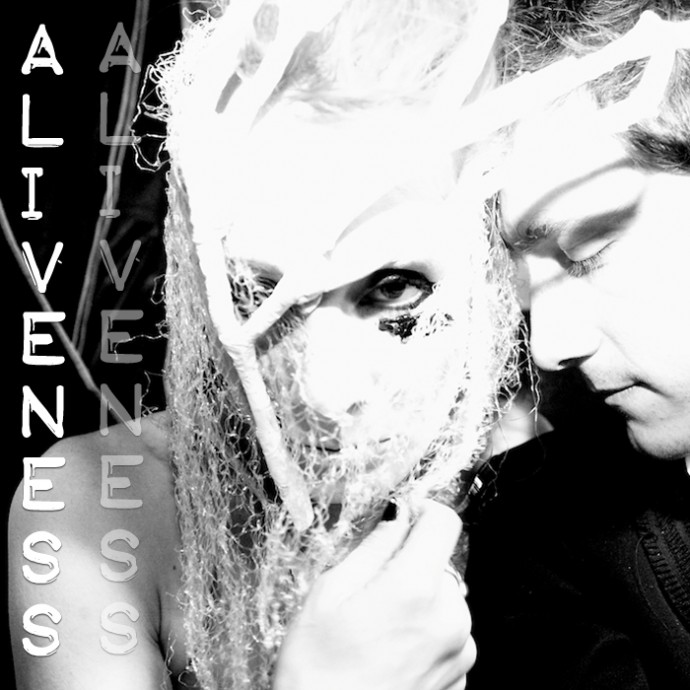


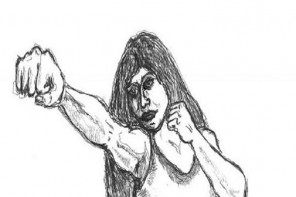
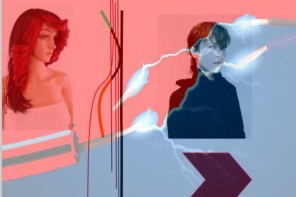
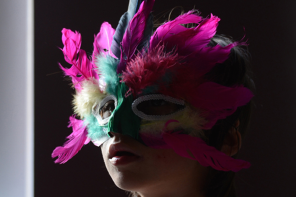
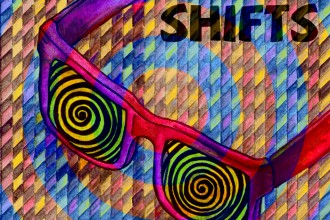
Pingback: Sensa Nostra Magazine: ALIVENESS | Mad Kate()